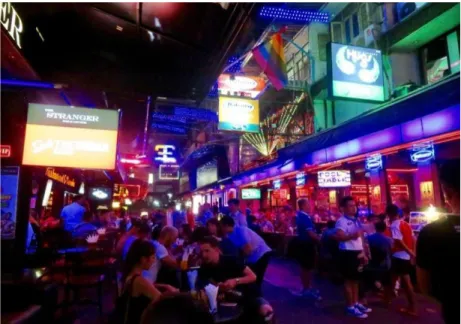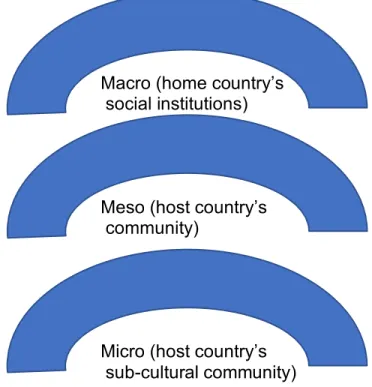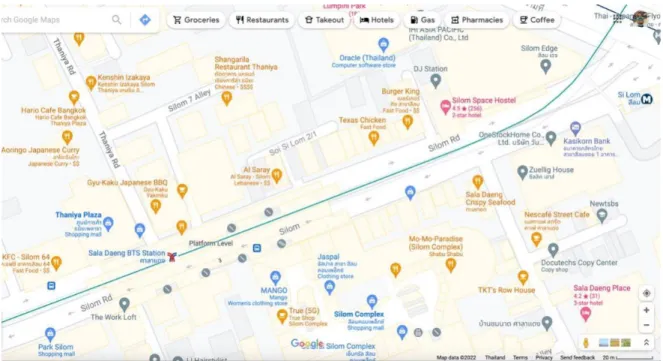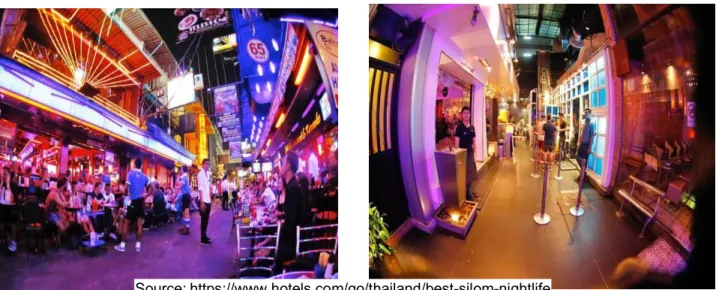Permission for the classification of this access to academic work is subject to the provisions of applicable law, the provisions of the UP IPR Policy and any others. I hereby grant to the University of the Philippines a non-exclusive, worldwide, royalty-free license to reproduce, publish and publicly distribute copies of this academic work in any form, subject to the provisions of applicable law, the provisions of the UP IPR policy and any contractual obligations, as well as more specific consent marking on the title page. Provide open access to the work, allowing fair use of the work in accordance with the provisions of the Intellectual Property Code of the Philippines (Republic Act No. 8293), especially for educational, scientific and research purposes.
This work is dedicated to all Filipino gay men working in Thailand and other parts of the world. Social Institutions of Queer Emancipation 92 Integration of Highly Skilled Filipino Gay Men in Bangkok, Thailand 95. Highly Skilled Filipino Gay Men as Labor Migrants 112 As Highly Skilled Filipino Gay Men in Bangkok, Thailand 113.
This study aimed to understand the labor migration among seven highly skilled Filipinos and their communicative practices of belonging and integration experiences as gay men in Bangkok, Thailand. This study highlights that looking at the issues of identity and belonging from the woman's perspective enhances our understanding of the multiple gender identities that contribute to the study of queer intercultural communication and migration.
INTRODUCTION
Within the context of the current study, highly skilled Filipino gay men were believed to have pre-existing cultural norms, beliefs, and practices that had already shaped their identity in their homeland. The results would offer a deeper understanding of the reasons for their coming to work in the country. Furthermore, the complexity of the relationship between sexuality and migration needs to be examined in order to theorize queer communication from the perspective of highly skilled gay men in the Global South.
In general, intra-regional labor migration plays an important role in the region's economy (Mack & Lim, 2017). This is especially true as most countries in the region may not be as accepting and tolerant of gay men and other gender identities. As a result, the visibility of gay men in the country is greater than in any other country in the region.
These experiences of gay men living and communicating their preferred identity and sexuality in the destination country can provide a deeper understanding of the nuances of sexuality. The topics of gay men's integration and placemaking experiences in different contexts are also evident in the literature. Smartphones and social media ensure that gay men can easily integrate and settle in the new country.
In general, the studies cited in the literature only investigated the different migration decisions among gay men.

METHODOLOGY
The emancipation of highly skilled Filipino gay men in Bangkok, Thailand
Regarding the workplace, Jas was also impressed by how much workplace equality is observed in Bangkok. It's like I live alone away from the eyes of my parents and people in my community in the Philippines. Although my parents know about my identity and sexuality, I was also a discreet gay man when I was in the Philippines.
It's like I live alone, away from the eyes of my parents and people in my community in the Philippines. He realized that he was wild, adventurous and daring when it came to sex, things that he couldn't do in the Philippines. He also compared his experience and reiterated how accepting and open gays are in Bangkok than in the Philippines.
I came out and never hesitated to try some of the sexual activities that I had never tried before in the Philippines. Mik and Jas described themselves as openly gay when they were still in the Philippines. Unlike in the Philippines, they could freely express themselves and engage in any sexual activity in Bangkok because everyone in the gay community is allowed to do so.
Coming to Bangkok and working allows them to experience sexual practices that they never experienced when they were still in the Philippines. Such perceptions can be explained by how highly skilled Filipino gay men adapt to the new environment and the nature of their profession. For example, Jed, Ram, Garry and Pen viewed and projected themselves as discrete gay men because that was how they presented themselves in the Philippines.
In fact, they admitted that they became more expressive in Bangkok than in the Philippines. For example, participants admitted that they could not express and explore their sexuality in the Philippines because of the influence power of these institutions. It should be noted that the study participants indicated that they felt more confident expressing their identity and sexuality in Bangkok compared to when they were still in the Philippines.
The integration of highly skilled Filipino gay men in Bangkok, Thailand
This suggests that he embraced Bangkok's gay culture and the way he perceived gay men in Bangkok is no longer the way he perceived them when he was still in the Philippines. Moreover, the studies also confirmed that social media enables gay men to integrate and settle easily in the new country. These gay applications can also be a convenient way for gay men to look for sexual partners in the online gay community.
Such use of online gay apps was also evident among highly skilled Filipino gay men in the study. Third, like other labor migrants, highly skilled Filipino gay men in Bangkok also faced emotional and social challenges working and settling in a new cultural environment. Fourth, the employment migration of highly skilled Filipino gay men to Bangkok can be considered borderline, temporal and spatial.
Liberation among highly educated Filipino gay men in Bangkok means understanding their sexuality through experiencing sexual practices that they never experienced while still in the Philippines. Furthermore, highly educated Filipino gay men perceived Bangkok as a city that welcomes and accommodates all people regardless of their sexuality. In other words, gay men projected the dominant social identity in heteronormative society to avoid bias.
Likewise, working in Bangkok allowed them to see and understand themselves as gay men. These gay spaces become a gay haven where gay men and other members of the LGBTQIA+ are made visible. The participants had to de-identify themselves as gay men in the Philippines because they did not want to be shamed, bullied and disrespected.
Highly educated Filipino gay men used some of the commodified gay spaces in Bangkok not only to conform to the new cultural environment but also to assert their identities. It can be argued that such identity validation occurs after highly educated Filipino gay men re-identified themselves in Bangkok. Therefore, the lives and experiences of gay men in the new cultural environment must also be explored using other methodological tools.
This leaves a gap in the literature and in the theorizing of queer intercultural communication, as the study excluded low-educated gay men who may also be in Bangkok as labor migrants. Migration motives of gay men in the new era of acceptance: a cohort study from Malmö, Sweden.



